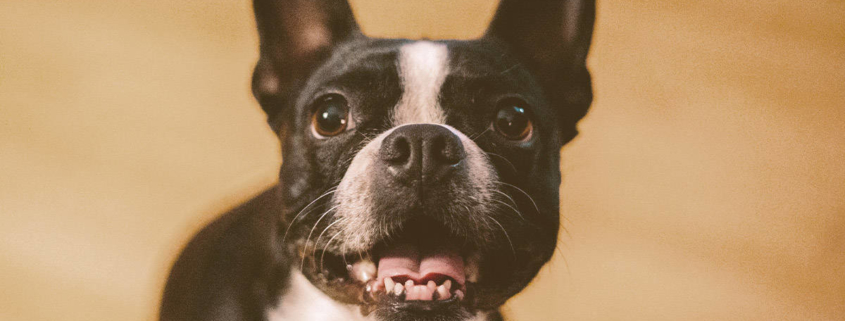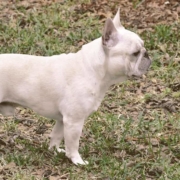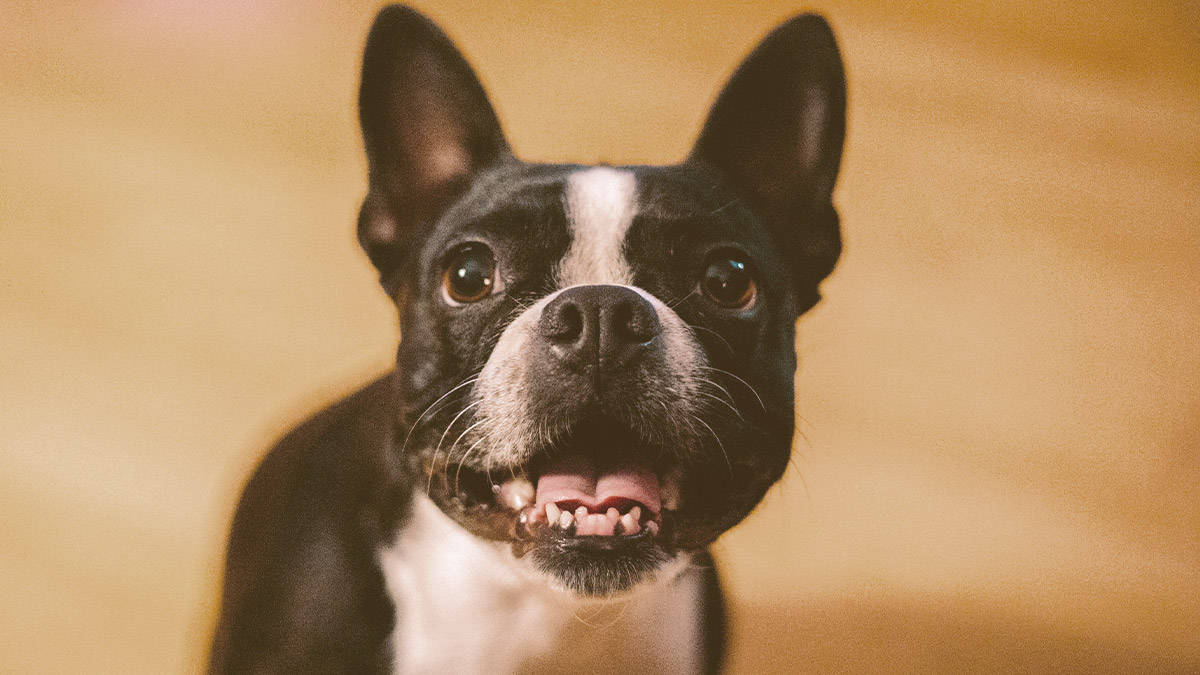
When Do French Bulldogs Stop Teething?
Alex Vicente • Updated on August 21, 2023
- This review contains affiliate links. Read more here.
- Not a substitute for professional veterinary help.
There’s nothing more adorable than a Frenchie puppy.
What you get in exchange for all the love and affection is a few months’ worths of constant chewing on everything.
Yes, even YOU might become one of its many chewed victims.
During their puppy stages, it’s normal to see your Frenchie start to bite almost everything.
After dealing with all the bites and maybe sock-chewing, you’re probably wondering, “when do French Bulldogs stop teething?”
Teething usually stops when your French Bulldog turns approximately seven to eight months.
The process might also depend on each Frenchie, based on their health and diet.
Stick around to get more in-depth info on your little pet’s teething process and know what to expect.
Table of Contents
How Long Does It Take French Bulldogs to Teethe?
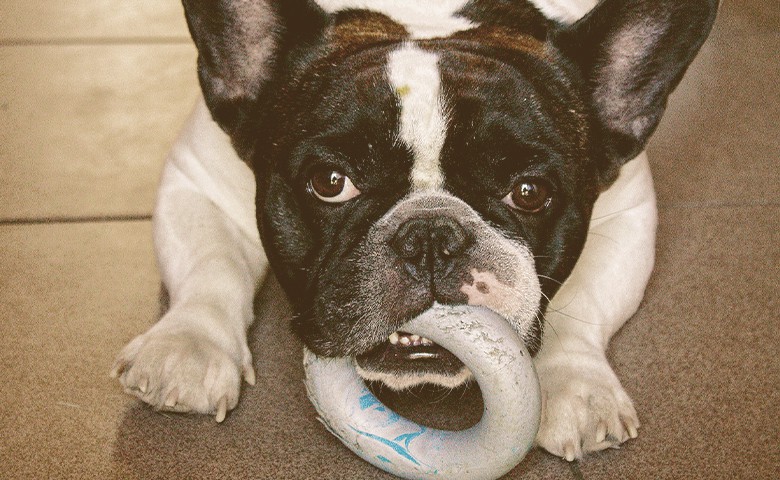
If you’re not so sure what the teething process entails, think of it this way.
Your puppy’s teeth are shedding to make way for stronger and permanent ones.
Teething for dogs is similar to humans, except we don’t chew nearly as much.
Teething for French Bulldogs can take as long as 24 weeks, but it can sometimes end earlier, at around 20 weeks instead.
The stages might take a while since molars are especially tougher to grow out.
When Do French Bulldogs Lose Their Baby Teeth?
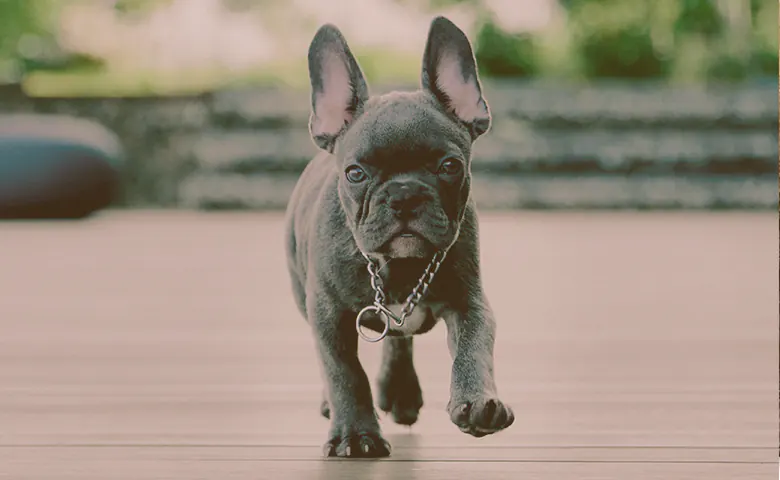
French Bulldogs aren’t naturally born with their baby teeth.
It’s so they’re not too harsh on their mother’s teat during the breastfeeding phase.
Frenchie puppies start to grow their baby teeth at around three weeks or so.
That’s when their mother will start to wean her puppies away.
Their milk teeth start to fall out once they turn three months old.
It’s because they’re getting pushed out by the adult ones.
What Are the Teething Stages of French Bulldogs?
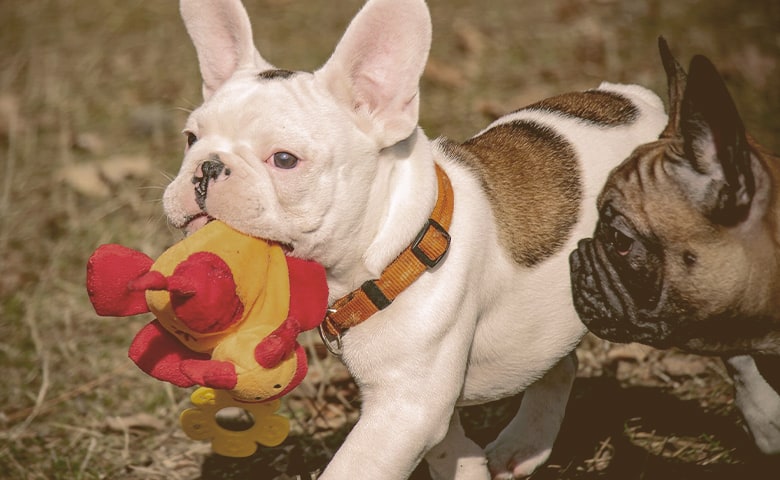
The whole teething development comes in a few stages for your Frenchie.
Check out the teething stages below.
Stage 1: 2-3 Weeks Old
At this point, your pudgy friend is probably still with their mother getting all the nursing and breastfeeding they need.
Their milk teeth are barely out and usually finish growing after eight weeks.
That’s when they should be taken away from their mother.
As a reference, once their eyes are starting to pry open, their baby teeth should also be peaking through.
You might take notice of their red gums during this stage.
Each tooth portion grows at a different time since some teeth aren’t as large or strong.
First, the incisors or front teeth will be visible, then their sharper teeth or canines will come out.
Once the latter starts to come through, they should be able to munch on solid foods.
Finally, their baby molars will mature, since they’re the largest.
Their growth usually halts at around the six weeks mark.
Stage 2: 12 Weeks Old
During this stage, the adult teeth should be breaking through your Frenchie’s frail milk teeth.
Start saying goodbye to their 28 baby teeth.
You can try to collect them if they haven’t already swallowed them.
Don’t worry though, they rarely ingest them and if they do, it’s not harmful to their digestive system and might come clean in their poop.
Stage 3: 20-24 Weeks Old
This is when all the adult teeth should be out.
You might notice their teeth becoming more prominent as they age.
The 28 baby teeth should be fully replaced with 42 adult ones.
The teething process should be over, but if you find that your French Bulldog seems to still have a few milk teeth intact, we highly recommend going to the vet, especially if they’ve surpassed 24 weeks old.
The good news is that after Frenchies get their adult teeth, they might get over the unrestrained chewing habit.
What to Expect When Your French Bulldog Is Teething

How would you know your adorable little pet is going through a teething process?
Well, several clear signs can indicate the start of your French Bulldog’s dental development.
Here are some of them below.
1. Lots of Chewing
Your French Bulldog could be in some pain as they teethe.
To evade the unpleasant feeling, they go to town on anything they can chew on.
The best thing you can do here is to get them proper chew toys that can help alleviate their uncomfortableness and maybe distract them as well.
You may also want to read:
Best Chew Toys for French Bulldogs: Top 5 Picks for 2025
2. Red Gums
If you slick back their mouth area, you’ll probably see a lot of redness in their gums.
The inflamed gums are all part of the process.
They might result in some bleeding that you can take note of on their chew toys or sleeping area.
That being said, you shouldn’t worry about it too much.
After all, bigger teeth are pushing their way out of your dog’s fresh gums.
It’s bound to get a little messy.
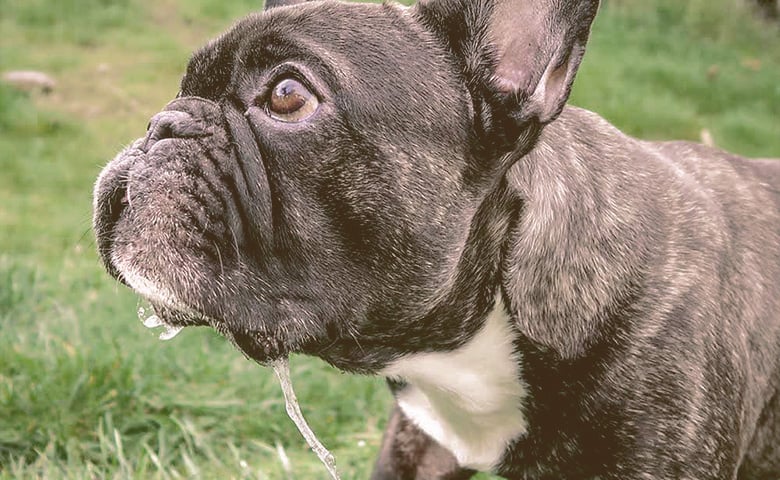
3. Excessive Drooling
Drooling is already a common French Bulldog trait.
During their teething, they might drool more often.
The pain, inflammation, and redness in the gums are all reactions that will stimulate excessive drooling.
If your pet is still drooling the same amount after fully teething, then you might want to visit your vet for any possible dental complications.
4. Behavioral Changes
If they’re in pain, you might expect your four-legged friend to act a bit irritated.
For instance, they might whine more than usual, eat less, have a shortened attention span, and more.
Once their adult teeth are fully out, they’ll be recovering well and become more playful and happy to be around.
5. Floppy Ears
Even though French Bulldogs have upright ears, teething can cause their ears to droop more than usual.
It’s nothing to worry about.
The teething process involves a significant amount of calcium level.
This means that there might be a redistribution of calcium that favors the teeth more than the ears.
To Conclude
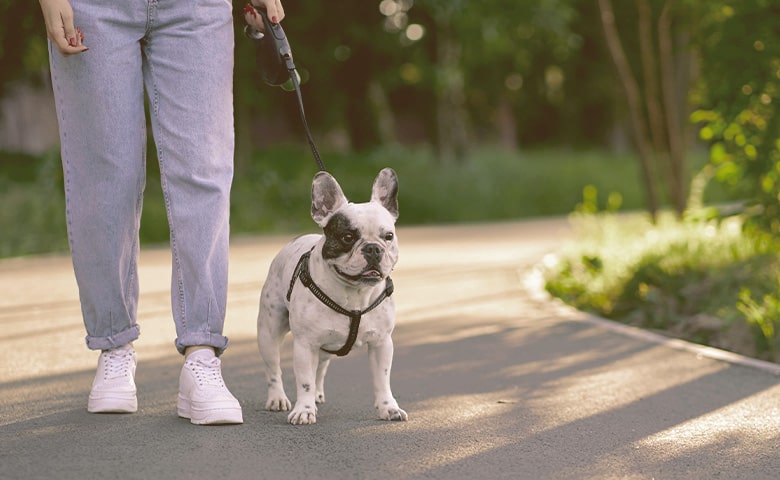
The teething process is all part of your Frenchie’s natural life cycle.
While taking its course, it might seem hard on them, but it’s necessary to see some healthy full-grown teeth.
It’s only a matter of eight months.
Your role is to be by their side and keep them as occupied as you can, whether it’s spoiling them with toys or giving them constant belly rubs.
It’ll help them power through the arduous teething.

